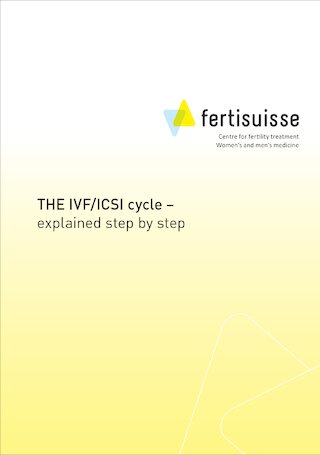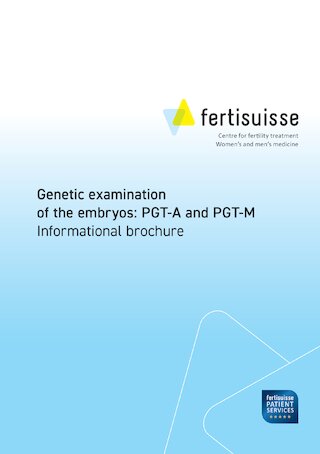An unfulfilled desire to have children can be an enormous burden for affected couples - physically, emotionally and as partners. If a pregnancy does not occur over a long period of time, the question of why often arises. There are many different reasons why a pregnancy does not occur - and statistically, around a third of them lie with the woman, a third with the man and in other cases with both partners or remain unexplained. In our fertility centers in Switzerland, we use state-of-the-art diagnostic procedures to identify the reasons for the lack of fertility as precisely and gently as possible. The aim is a comprehensive, individual assessment that takes into account physical, hormonal and functional factors - without unnecessary stress for patients.
In women, the most common causes of impaired fertility include advanced age, hormonal disorders such as a lack of ovulation, endometriosis, polyps or fibroids in the uterus as well as blocked or damaged fallopian tubes. Obesity, severe stress and an unhealthy lifestyle - especially smoking - can also have a negative impact on the chances of pregnancy.
In men, a reduced number or mobility of sperm is often responsible. Structural changes, infections, hormonal imbalances, environmental influences and lifestyle factors such as smoking and obesity can also affect the quality of sperm cells. Precisely because the causes are so wide-ranging, a sound diagnosis of both partners is crucial for the further course of treatment.
In around 20 percent of cases, no specific cause for the unfulfilled desire to have children can be identified despite careful examination. In technical terms, this is referred to as unexplained or idiopathic infertility. Even in such cases, various treatment options are available, which are individually tailored to the couple.
Unwanted childlessness is more than just a medical problem. It can have a profound impact on a couple's self-image, well-being and life planning. The emotional strain associated with repeated disappointments, uncertainties and treatment cycles is enormous. This is why the World Health Organization (WHO) has recognized infertility as a disease. This recognition underlines the importance of taking the issue seriously and giving affected couples access to professional help.
Specialist associations recommend consulting a specialist doctor or fertility clinic after twelve months at the latest without achieving a pregnancy. For couples over the age of 35, we recommend contacting us after just six months. This is because a woman's fertility decreases significantly with age, and early diagnosis can significantly improve the chances of successful treatment.




